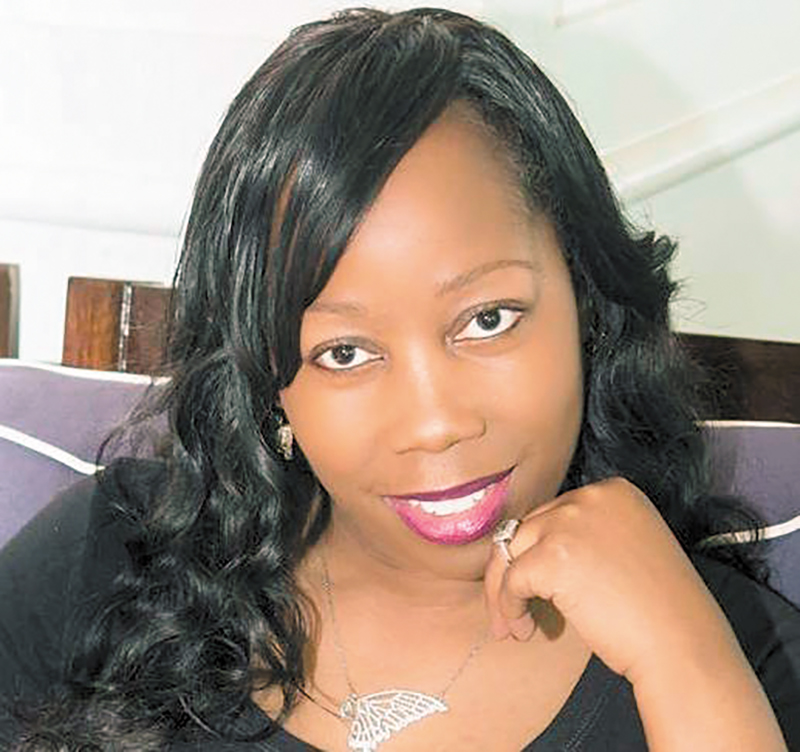Health
Lupus: A Little Known Illness That’s Invisible, Life Threatening

By Leonard E. Colvin
Chief Reporter
New Journal and Guide
In the spring of 2005, Chastity Corbett believed she was on her way to becoming a lawyer.
She was among the first cohort of graduates from the Norfolk State University Master of Criminal Justice program, where she was offered a fellowship for grad school that would bolster her ability to gain a seat in law school.
Shortly after graduation, Corbett noticed a rash on her arm. The initial diagnosis was an allergic reaction to laundry detergent or other household substances.
But the rash continued and eventually, she consulted a specialist, Dermatologist Dr. Fred Quarles. A skin biopsy determined that she tested positive for lupus.
“By October I could not keep anything on my stomach and began to lose weight,” she recalled. “By January of 2006, I was fatigued, my skin began to be sensitive to the sun, and I was experiencing chest pains. I was hospitalized with pneumonia and a pulmonary embolism. The rheumatologists recognized that instead of just discoid lupus which primarily affects the skin, I have systemic lupus.”
Periodic hospitalization for bouts of pneumonia, a pulmonary embolism, meningitis, a mild stroke, epilepsy, and other issues have deeply impacted Corbett’s life and altered her plans.
The Month of May is Lupus and Fibromyalgia Awareness Month to bring the nation’s attention to two invisible illnesses that receive little to no attention. There are approximately 195,000 Virginians living with lupus and/or fibromyalgia. There are an estimated 1.5 million people nationally who are suffering from the effects of the life-threatening disease lupus.
Recent statistics compiled by the National Lupus Foundation of America reveal that African-Americans are disproportionally impacted by the disease. Black/African-American women with lupus die up to 20 years earlier than non-Hispanic white women with lupus.
Lupus is an autoimmune disease that causes the immune system to attack the body’s organs. In severe cases, organ damage and failure can occur. Lupus does not discriminate; affecting people of all races and ethnic groups. Over 90 percent of people with lupus are women between the ages of 15 and 45.
Men and young men have lupus, too.
African-American women are three times as likely to get it than White women.
Lupus complications can lead to death, primarily from organ failure.
About 4 million people nationally are living with fibromyalgia.
Fibromyalgia is a disorder characterized by widespread musculoskeletal pain, accompanied by fatigue, sleep, memory, and mood issues.
Researchers believe that fibromyalgia amplifies painful sensations by affecting the way your brain and spinal cord process painful and non-painful signals.
Symptoms often begin after an event, such as physical trauma, surgery, infection, or significant psychological stress. In other cases, symptoms gradually accumulate over time with no single triggering event.
Women are more likely to develop fibromyalgia than men. Many people who have fibromyalgia also have tension headaches, temporomandibular joint (TMJ) disorders, irritable bowel syndrome, anxiety, and depression.
Corbett is now 49, and thanks to her husband and three grown sons, she has converted her battle with lupus into a mission to help others who are challenged not only with the malady but the challenges from their lives impaired by it.
Instead of helping people maneuver through legal issues in a courtroom, Corbett founded and runs the Social Butterflies Foundation.
According to Corbett, it is the first and only 501c3 nonprofit organization located in Hampton Roads dedicated to providing real, direct assistance to lupus and fibromyalgia survivors and their families. Corbett said that its volunteer Board of Directors is comprised of “survivors which gives us great insight and understanding of the needs of those we serve.”
Corbett said the Social Butterflies Foundation got its genesis in 2018 when the Lupus Foundation of America DMV Chapter folded, and the national office took over. The National Lupus Foundation of America does not provide direct assistance to survivors and their families. Funds raised from their walks are used for research, not to help with the daily living expenses of survivors.
So, in 2018, she founded Social Butterflies Foundation to bridge the gap in services for survivors and their families. Social Butterflies Foundation hosts its annual Butterfly Walk for Lupus & Fibro to raise funds for free programs and services to provide much-needed direct assistance.
“It was good that they used the money for research, but people have needs; they’ve got to live,” said Corbett. “They should not have to choose between paying rent and buying food or paying co-pays to see their doctor and get their meds to survive.”
Corbett said that in 2020 the COVID Pandemic caused her to shift the Butterfly Walk for Lupus & Fibro from an in-person event to a virtual event.
But the Butterfly Walk for Lupus & Fibromyalgia will be held in person on June 10th at John B. Todd Stadium in Newport News, Virginia.
The walk begins at 6 p.m. with check-in/registration beginning at 5 p.m.
The Grand Marshal is Virginia State Delegate Marcia Price, who has been a long-time supporter, Corbett said.
Newport News native, actress, and comedienne, Cocoa Brown, will be the celebrity guest hostess alongside comedian Quincy Carr.
Money raised from the walk will be used to help provide emergency financial assistance, college scholarships, support groups for youth and adults, wig outreach programs, care outreach programs, holiday outreach programs, summits, health fairs, educational resources, advocacy, and support research for a cure.
“We even have a fund for people who lose their hair when undergoing chemotherapy,” she said. “We provide assistance with wigs or ‘hair hats’ and we give tips on personal and beauty care. It is important to take care of yourself mentally and physically.”
“We want the survivors and their families to know they have helped fight lupus and fibromyalgia,” said Corbett. “I have strong support from my husband and family. All of the survivors are family, and in this family, no one fights alone. Butterflies don’t let each other fly alone.”




